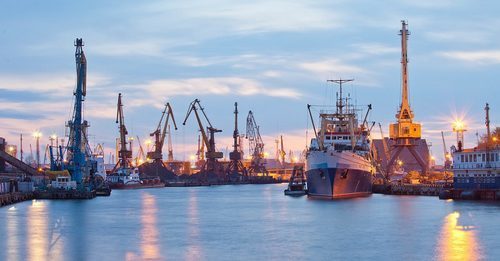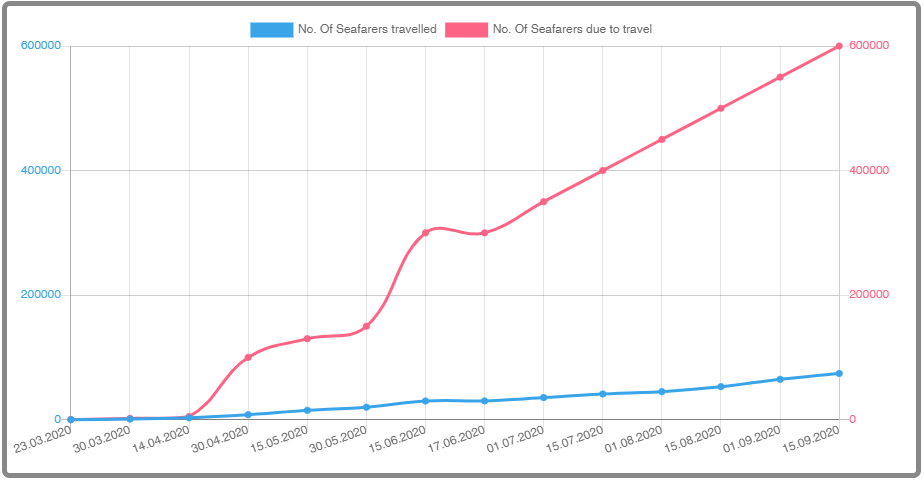ÐÎÑÑÈÉÑÊÈÉ ÏÐÎÔÅÑÑÈÎÍÀËÜÍÛÉ ÑÎÞÇ ÌÎÐßÊÎÂ
SEAFARERS' UNION OF RUSSIA
A NON-UNIONIZED SEAFARER
IS AN UNPROTECTED SEAFARER
Back
Crew changes for seafarers of any nationality will be possible in Russian ports

According to the Order of the Russian Government No. 2338-r, signed on September 12, 2020, crew members of sea-going and river vessels at Russian ports are allowed to enter and leave the country. In the text of the Order it is noted that "specialists are allowed to use road, air, rail and sea transport for movement."
Recall that after the borders closure and the cancellation of flights by many countries, the arrangement of crew rotation became a great problem: for a long time it was almost impossible to replace crew members whose employment contracts had expired, as well as to ensure the boarding of their colleagues who were ready to replace them.
Russia was no exception: in the country's ports only national crews could be replaced where the relevant quarantine requirements were met.
According to the International Ship Managers' Association - InterManager, as of September 9, 2020, 69 506 seafarers have been replaced around the world out of about 600 000 total number of crew members, who continue to remain on board beyond their contractual terms. In July this figure was 41258 seafarers, or 10.3% of the total number of crews stuck on board their vessels. Today the situation with crew changes, albeit slowly, is improving, and the fact that now foreign crews of ships calling at Russian ports can disembark and fly home is a huge achievement that the Seafarers' Union of Russia contributed a lot.

- From the very beginning of the pandemic problems started everywhere. In Russian ports, it has became impossible to make foreign crews change, and even with Russian crews, in the absence of general requirements established by Russian consumer safety watchdog Rospotrebnadzor, everything was very difficult. The situation did not allow to promptly and in compliance with all necessary measures to counter the spread of coronavirus infection to change the crews, since the regional departments of Rospotrebnadzor set their own excessive requirements to prevention of coronavirus infection going beyond the general ones adopted at the federal level, - says Yury Sukhorukov, the Chairman of the Seafarers' Union of Russia.
Almost immediately, the SUR started to receive complaints from crew members. The seafarers reported about the cases when they were prohibited from leaving their ships though their employment contracts had expired and obliged to undergo 14-day quarantine period directly on board, and not at their place of residence or at the special observation facility.
The seafarers reported that they were subject to the requirements established for persons working on a rotational basis, that is, they were obliged to undergo two weeks self-isolation and observation period at special isolation facilities before joining their vessels.
However, the on/off rotation has nothing to do with the pattern of seafarers work. In addition, the main problem was that Russian borders were being closed for a long time, and after a while Russia opened it's borders with a few countries only.
Taking this into account, the members of the Russian Trilateral Commission, including the Maritime Transport Workers Federation and the SUR as the affiliated member of the latter, applied to Rospotrebnadzor, the Ministry of Transport of the Russian Federation, together with other federal executive authorities with the proposal to develop and implement arrangements enabling unhindered changes for crews of sea-going vessels at Russian ports, free movement between the constituent entities of the Russian Federation and crossing the state border.
The Seafarers' Union of Russia expects that the Order of the Government of the Russian Federation will ensure an opportunity for change of crew members of Russian and foreign ships and to return the rotation process in Russian ports to the pre-crisis level as soon as possible.
Up
